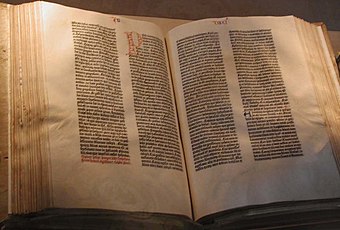Monday, June 18, 2012
In Search Of Truth, Acts 25:1-12
After two years under the house arrest of governor Felix in Caesarea, governor Festus took Felix's place. It was appropriate for local governors to visit Jerusalem soon after taking their positions, and while Festus made this customary visit, Paul's case was revived by the Jewish religious leaders who wanted resolution. (In the form of his death.) They requested Paul be transferred to Jerusalem for trial, though they probably didn't tell Festus their plans to kill him. (v.1-3)
Thankfully, history tells us that Festus was a better man than his predecessor. He instructed the Jewish religious leaders to come to Caesarea to bring their charges against Paul there. About two weeks later, Paul was on trial again before a governor in Caesarea, with the Jewish leaders trying and failing again to make a case against him. (v.4-7)
Paul argued again that he hadn't done anything to violate religious or secular law. And although Festus was a better man than Felix, that isn't saying much. Festus recognized the political value of having a good relationship with the Jewish religious authorities. So he attempted to grant the previous request of the Jewish religious leaders and offered Paul the option of settling this dispute before the Jewish people, though still with Festus as the acting legal authority in the case.
Paul argued that it was obvious, to both himself and Festus, that he hadn't done anything in violation of Jewish law, and that the only thing left to settle was whether or not he was innocent under Roman law as well. Paul was on trial in a Roman court, which ultimately derived its authority from Caesar, the emperor of Rome. And as a citizen of Rome, Paul had the right to have his case heard by Caesar himself, or one of his assistants. (v.8-11)
We can't know what was going on in Paul's head, but he probably realized that the more his case was handled by Jewish religious leaders, the greater his chances of winding up dead. On the flip side, if he were to win his case before Caesar, it could be a tremendous victory for the rights of Christians everywhere in the Roman empire. Everything about Paul's appeal to Caesar makes perfect sense.
Festus seemed to think so, too. At least from his own perspective. Getting Paul into someone else's hands meant that he didn't have to hurt his relationship with the Jewish religious leaders by letting Paul go free (which he was probably leaning toward doing, given that the alternative would be an obvious injustice and serious stain on his record just a couple weeks after starting the job). So Festus decreed that Paul would be tried before Caesar. (v.12)
I look at this passage and see another example of God's absolute control over the situation, despite the completely free choices of selfish people. As a reminder, more than two years before this, Paul had been told by Jesus that he would not die in Jerusalem at the hands of the Jews who were so angry at him, but would instead act as a witness to the truth about Jesus to those in Rome. (Acts 23:11)
The idea of telling people about Jesus in Rome must have seemed so random when Paul heard it. He had been in Jerusalem to deliver a financial gift to Christians in need, when he was caught up in a mob and barely escaped with his life, only to sit in a prison. If I were Paul, I would be thinking, "Rome? I'm going to Rome? How about just getting out of this cell for starters?" But as we trace a path from chapter 23 to where we are now in chapter 25, we see a series of events that, although slowly, also inevitably lead Paul to Rome.
The journey for Paul wasn't over yet at this point. In fact he still had some pretty scary stuff to deal with before arriving in Rome. But after two years of waiting, even this little hint of his final destination must have been enormously encouraging.
God's agenda often takes a long time to play out. (At least from our perspective.) I think fiction has spoiled our expectations of life, given that even a hard-won battle that takes place over a lifetime can still be told in just a couple of hours with the help of some age make-up pasted on between scenes. An epic, decades-long struggle where good triumphs over evil can be read in just a few months in a paperback trilogy.
But the story God is crafting is much longer than a few hours in a theater and fills far more than a few hundred, or even thousands of pages. And as you and I are painfully aware, it involves waiting. But even while we wait, we can see those glimmers of hope, those small reminders that God's plan is still on track. We can celebrate those small bits of foreshadowing and know that when God says something will happen, we don't have to wonder if it will or not.
Subscribe to:
Post Comments (Atom)

No comments:
Post a Comment